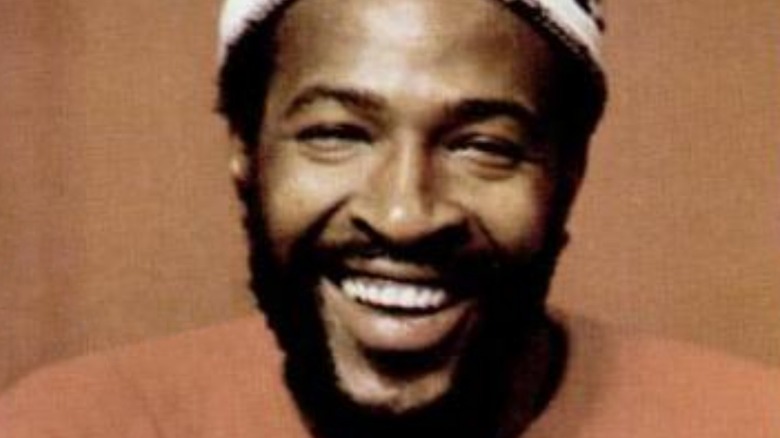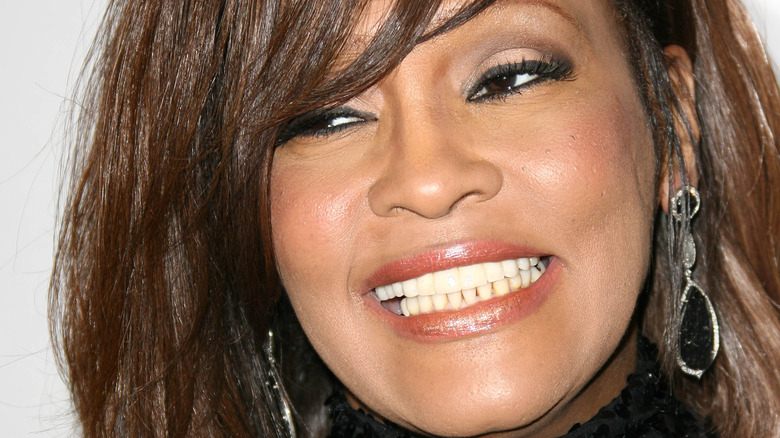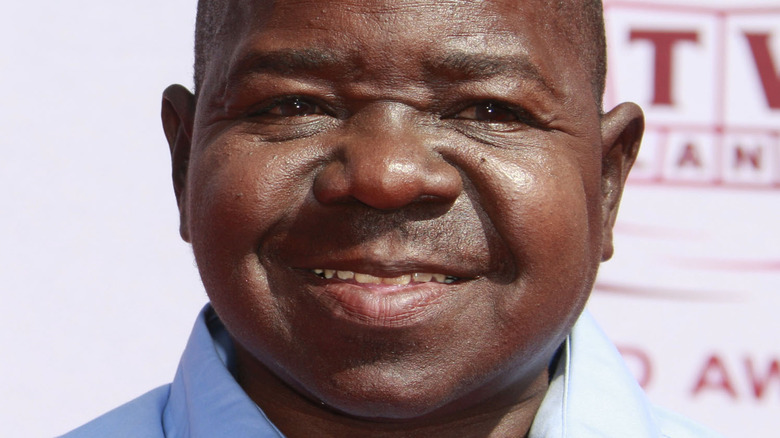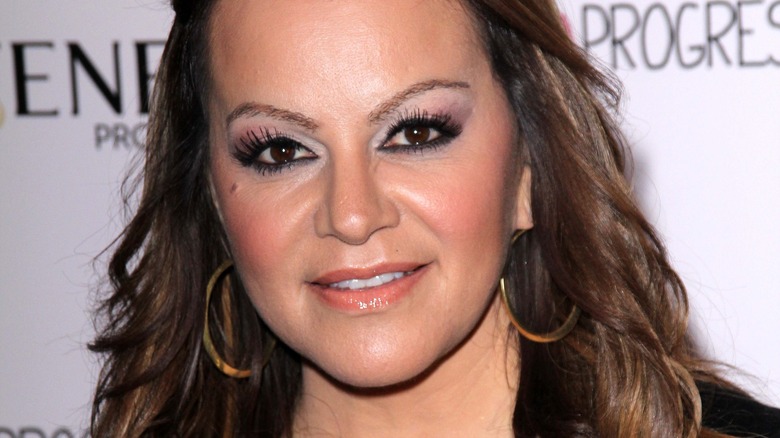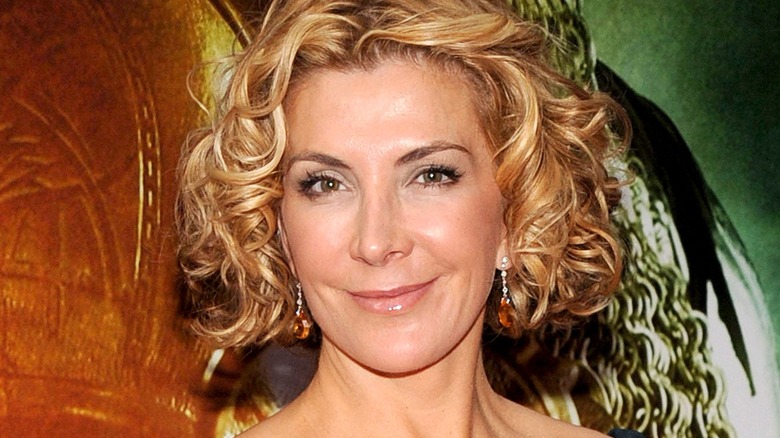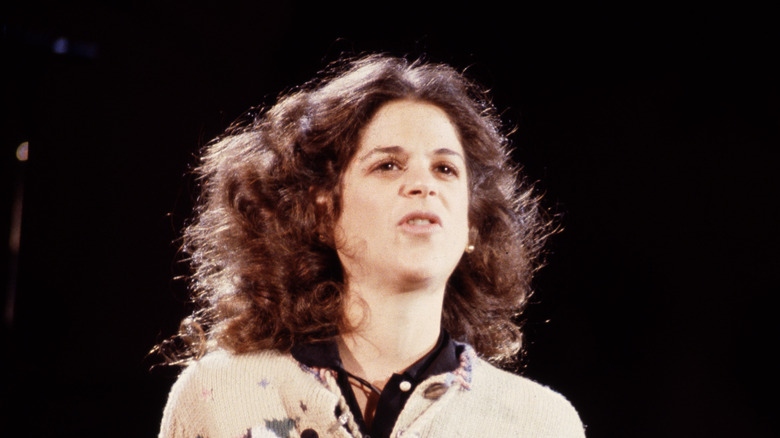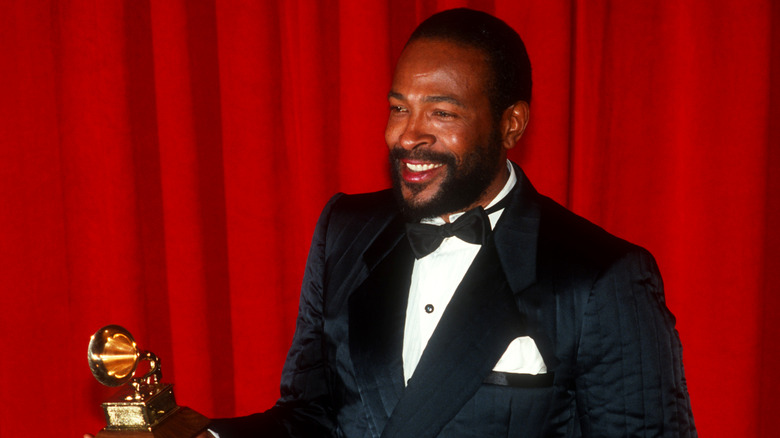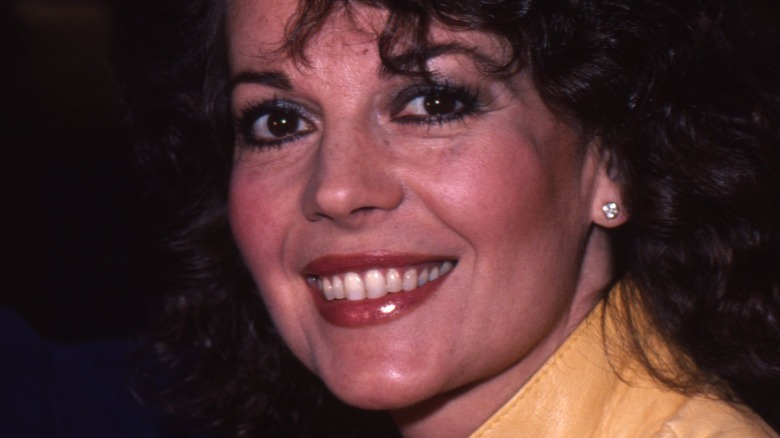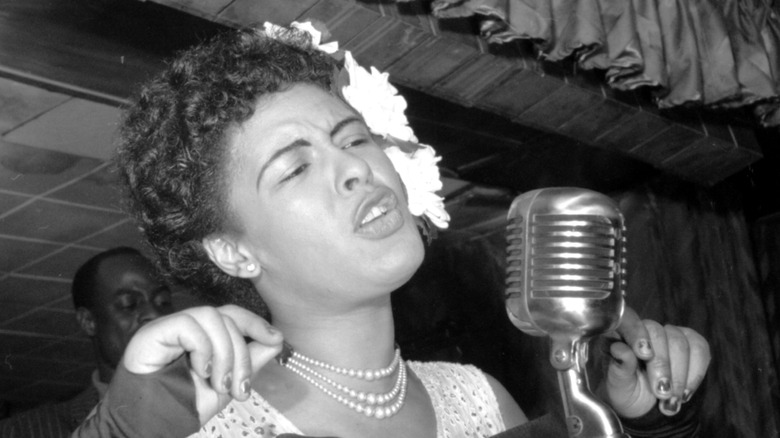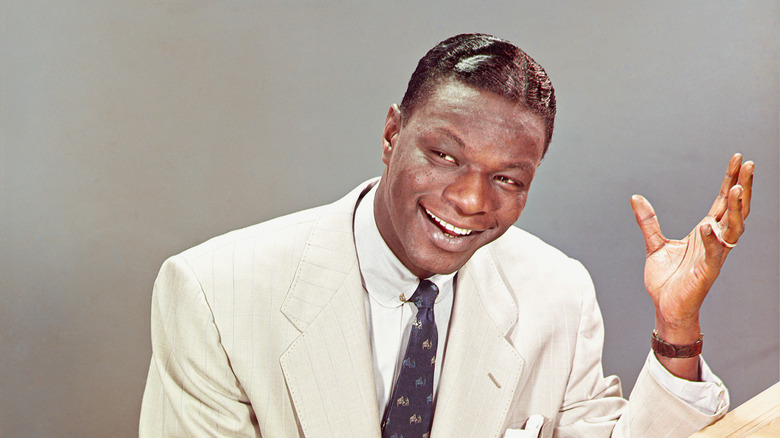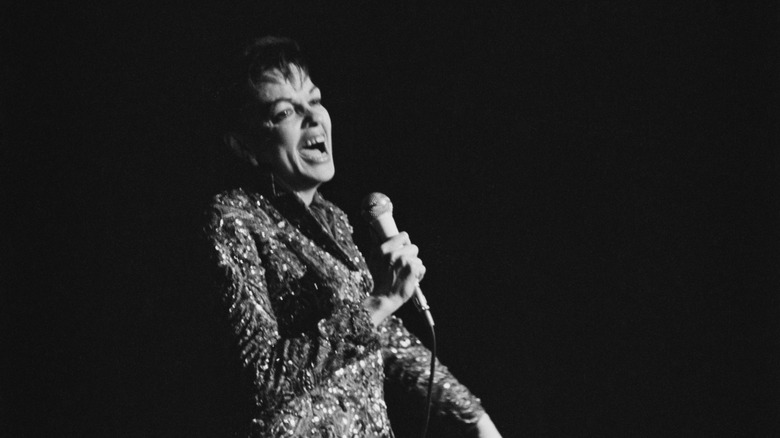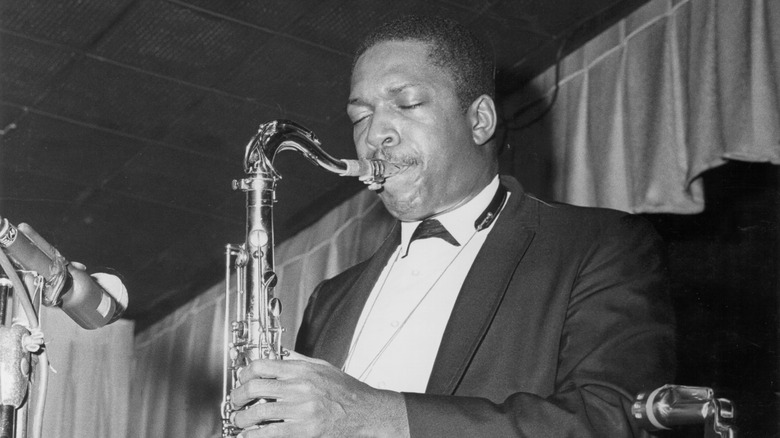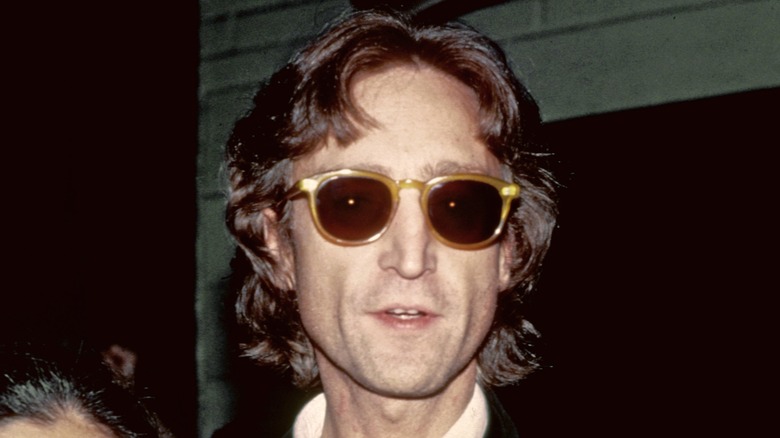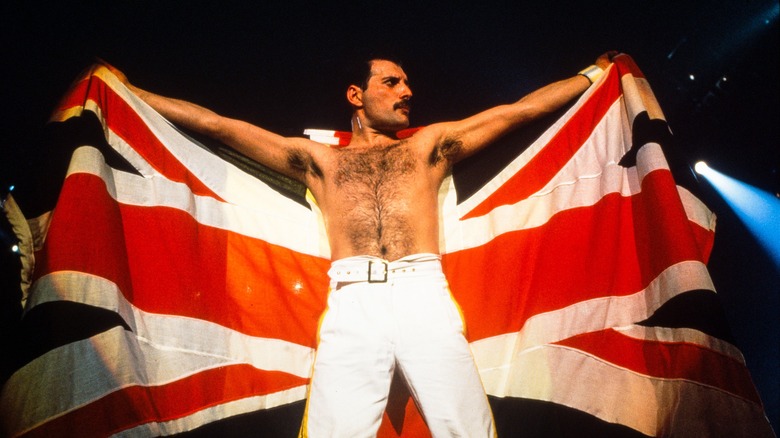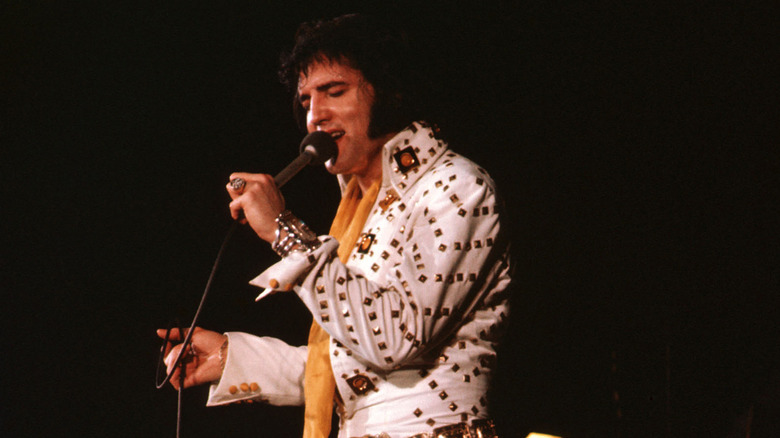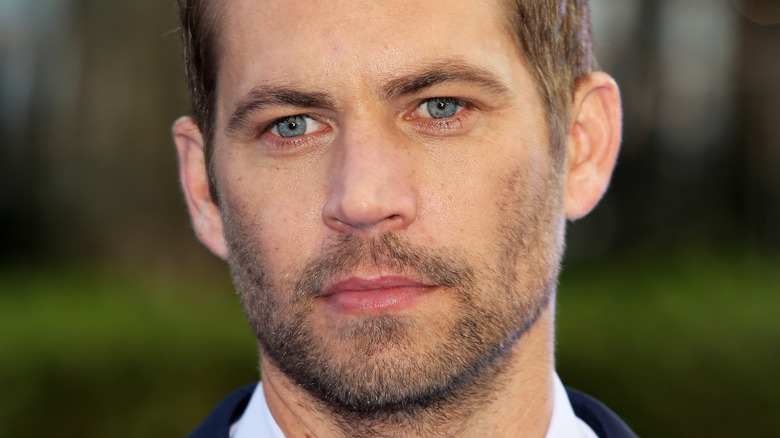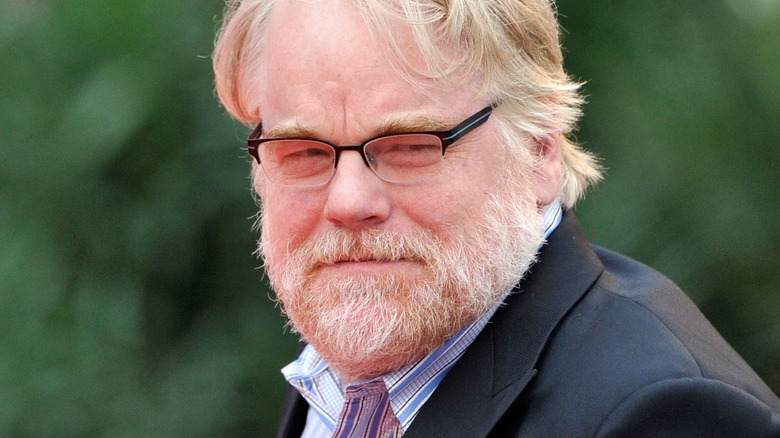Famous Celebrities Who Died In Their 40s
They say life begins at 40, and while that can be something normal people who are getting old tell themselves to feel better as the years tick by, for celebrities, it can be a reality. By the time a celeb has hit their 40s, they are either cementing legendary status or slowing down after a couple of decades in the public eye. It might even be the first time they have considered starting a family. For a celebrity, the 40s can be a sweet spot.
But sadly, for other celebrities, life ends at 40. Or at least, in their 40s. After spending half their lives in the glare of the media spotlight, some celebrities are cracking under the strain. Substance abuse might be taking its toll. Illnesses related to aging start creeping in. And then there are the unfortunate accidents and senseless murders.
Regardless of how it happened, these celebrities all tragically died in their 40s.
Whitney Houston
Whitney Houston was a powerhouse singer, winning multiple Grammys, racking up No. 1 singles, and breaking chart records like it was easy, per Biography. While most people would look at Houston's career and think she'd reached the pinnacle in every way, according to the Guardian, she had a very complex relationship with it, even early on. In 1989, she was booed at the Soul Train Awards for being, in her own words, "not Black enough." Some radio stations wouldn't play her music because of this perception, and she got the nickname "Whitey Houston." "I don't think she ever recovered from it," her saxophonist Kirk Whalum reflected. "It was one of those boxes that was checked, that when she ultimately perished it was because of those boxes."
Fame wasn't nice to Houston in other ways as well. By the end of her life, after turbulent relationships and drug use that led to cruel tabloid headlines, people could see Houston was not okay. She died in 2012, the night before the Grammy Awards, in a hotel bathtub. While rumors swirled about the reasons, Entertainment Weekly reported her death was ruled an accidental drowning, while "heart disease and chronic cocaine use were contributing factors."
Gary Coleman
Gary Coleman might have found fame on "Diff'rent Strokes," but as he told a reporter for the Las Vegas Sun in 1999, it had effectively ruined his life. "That, 'Whatchoo talkin' 'bout,' ugh," Coleman said. "If I could go back 14 years and not say that line, I'd do it. Realistically, I hear that line at least twice per day. It has become part of the national vernacular."
While Coleman still got relatively steady acting work, most of the roles he was offered weren't the kind of thing he really wanted to do. He explained, "Playing myself gets really old, really quick ... I like good humor. I like being the pivotal character, the supporting character who gives comic relief. At heart, I'm a scene-stealer. I'm just waiting for my next opportunity."
It was only when he died from injuries sustained in a fall down the stairs in 2010, aged 42, that the world found out how much Coleman hated the situation he'd found himself in in life. According to the BBC, his will instructed there would be no funeral, and the only memorial could be a wake – but one arranged by people who hadn't made money off him when he was alive and were able to "look each other in the eyes and say they really cared personally for Gary Coleman."
Jenni Rivera
Jenni Rivera had a full and multifaceted career, selling millions of albums, hitting No. 1 multiple times on the Latin Album Chart, starring in a successful reality show, and sharing her expertise as a coach on the Mexican version of "The Voice," according to CNN. But she didn't downplay what it took to be so successful. "I'm very happy for the success that I've had, but I've worked so hard at it," Rivera said. "It's not that I feel that I deserve it. You kind of work hard and you have expectations, so I'm living my expectations right now ... it's great, it's beautiful."
Tragically, in 2013, a private jet crashed into a mountain in New Mexico, killing Rivera and everyone else on board. She was 43. The plane she was traveling in was also 43 years old, reported CNN, and sustained major damage the previous decade, most likely making it unsafe.
At Rivera's funeral, in front of over 6,000 mourners, her son Michael remembered her as "a singer, an entertainer, a diva, a fighter, an entrepreneur, a philanthropist, and more than anything, a mother – the best mother" (per BBC News). Her manager Pete Salgado said, "Jenni made it OK for women to be who they are. Jenni also made it OK to be from nothing, with the hopes of being something."
Natasha Richardson
Natasha Richardson came from a famous acting dynasty, and while this had plenty of perks and helped open doors for her, there were also some downsides. She told the New York Times about inviting her father, the director/producer Tony Richardson, to come see her in one of her first paid acting jobs, performing in "A Midsummer Night's Dream" in London. Instead of being proud, he trashed her performance. She recalled, "I'd thought I was so wonderful! I cried, made excuses ... He said I must find something more interesting than myself in the character. The next day he FedExed a copy of the play to me from Los Angeles, marked up with suggestions!"
Thankfully, Richardson went on to have a very successful career, as well as a happy marriage to fellow actor Liam Neeson. But the Guardian reports that, tragically, she died in 2009, while on a skiing trip with her family, from injuries sustained in a fall on the slopes.
When asked by Richardson's friend Andy Cohen (via Little Things) what his favorite film of hers was, her son Micheál said, "Just based off of who she is and how I remember her, it has to be 'The Parent Trap.' That's more or less what she was like. She was this sweet, amazing mother figure — my best friend."
Gilda Radner
The comedian and actress Gilda Radner is most famous for her work on "Saturday Night Live," but fans also loved that she married fellow funny person Gene Wilder, and their marriage seems to have been wonderful.
While Radner was planning for a future and children with her new husband, she started feeling unwell, reports the Guardian. After seeing doctor after doctor who misdiagnosed her and downplayed her concerns or outright dismissed them, Radner was finally diagnosed with ovarian cancer in 1986. "Cancer is probably the most unfunny thing in the world, but I'm a comedienne, and even cancer couldn't stop me from seeing humor in what I went through," she wrote into the intro of "It's Always Something," her book about her fight against the disease (via Simon and Schuster). Sadly, her cancer returned in 1989, and she died that year, aged 42.
"I wanted a perfect ending," Radner wrote before she died, "Now I've learned, the hard way, that some poems don't rhyme, and some stories don't have a clear beginning, middle, and end. Life is about not knowing, having to change, taking the moment and making the best of it, without knowing what's going to happen next. Delicious Ambiguity."
Marvin Gaye
In 1971, the singer Marvin Gaye did a rare interview with Disc and Music Echo (via the Guardian). The reporter described Gaye as the "the least known-about" Motown singer, despite already selling millions of albums. That's certainly no longer true today, thanks in large part to the album "What's Going On," which was released that same year, and tackled some of the biggest topics of the turbulent time. Gaye told the reporter, "The material is social commentary but there's nothing extreme on it. I did it not only to help humanity but to help me as well, and I think it has. It's given me a certain amount of peace."
But in an eerie bit of foreshadowing, when asked about his plans for the future, Gaye replied, "I don't have any plans at all. I never plan anything. I never have and I never will." He was killed 13 years later, aged 44, shot by his father during an argument.
At Gaye's funeral, his friend Dick Gregory eulogized (via UPI), "Marvin told me, 'I like to raise people's consciousness. I want to give them hope.' Well, brother Marvin, you did that — with class and warmth and love. You left us too soon, but any time would have been too soon."
Natalie Wood
Natalie Wood is famous for appearing in classic films like "Rebel Without a Cause" and "West Side Story," Britannica records. But she's also famous for her two turbulent marriages to the same man – Robert Wagner – and the tragic, mysterious way that she died. The fact said husband was there when she died has just added to the public's questions about her death.
Wood drowned in the Pacific Ocean in 1981, aged 43. She was on a boat with Wagner and her co-star Christopher Walken. Exactly what happened is still unclear, although witnesses said they heard arguing that night, but one thing we do know is that Wood wouldn't have gone in the water by choice. As she told Hollywood columnist Shirley Eder in 1977 (via E! Online), "I had a mean director one time who threw me in the ocean. I was terrified. I was petrified, because we were in the open ocean." It was a fear that stayed with her for the rest of her life.
While her cause of death was drowning, how it happened was originally labeled an accident, then "undetermined" in 2012, and finally as "suspicious" in 2018. Wagner has categorically denied he had anything to do with his wife's death.
Billie Holiday
Billie Holiday is "often called the greatest American jazz singer," according to Encyclopedia.com. Frank Sinatra said, "Billie Holiday was, and still remains, the greatest single musical influence on me." And the writer Leonard Feather raved, "Her voice was the voice of living intensity, of soul in the true sense of that greatly abused word." Rave reviews if ever there were.
But outside of her career, Holiday's life was far from a fairy tale, with boyfriends who took advantage of her, marriage to a "wannabe gangster" (per NPR), drug and alcohol addiction, time in jail, and blatant racism all disrupting her career. In an interview in 1956, she explained that many jazz musicians died young because "we try to live a hundred days in one day, and we try to please so many people. Like myself, I want to bend this note, bend that note, sing this way, sing that way, and get all the feeling, eat all the good foods, and travel all over in one day, and you can't do it."
Holiday joined those other gone-too-soon musicians in 1959, dying from "alcohol- and drug-related complications," per Biography. Her husband buried her in a "small square of gray, mean-looking ground" in an out-of-the-way cemetery, "probably because it was cheap." She didn't even have a tombstone, leading DownBeat magazine to ask (via NPR), "Where were all the people who had made money off the singer during her life?"
Nat King Cole
In an interview with PBS discussing the documentary she made about her father, Nat King Cole's daughter Carole said of her father's musical impact, "Perhaps there's a smile and warmth in the very sound of a Nat King Cole vocal that strikes a personal chord with people." Despite facing racism in the 1950s and '60s, Cole was a huge star. However, his career would be cut tragically short.
According to the LA Times, in 1965, Cole checked into the hospital. Suffering from lung cancer, his left lung was removed and he spent three weeks recuperating, or so he thought. In reality, the doctors now knew the cancer had spread beyond control and they had told Cole's wife Maria. She chose not to tell him. As a hospital spokesperson explained after Cole died, Maria "knew for several days he was dying, but she didn't want anything made public because he watched television constantly." Instead, she stayed by his side, took him for a couple of short drives, and brought him home to see their kids one last time. Meanwhile, she wrote fake statements about how well he was doing, supposedly written by her husband, to release to the media, while barring visitors and interviews. And it did not help Cole's condition when he learned his father had died, a week into his hospital stay.
Cole died of cancer in 1965, aged 45.
Judy Garland
Judy Garland will forever be best known as Dorothy in "The Wizard of Oz," but she had a prolific career after that as well. Unfortunately, things often didn't go well, like with her starring role in the 1954 remake of "A Star is Born." She started the production clean, but when the studio pushed her too hard, Garland turned to drugs again. Then the execs ruined the movie, according to the film's director (via RogerEbert.com), who said, "When we finally got the film into the can, we had what I considered one of Garland's finest performances. But the studio ran into trouble – the public thought the picture was too long – and so they butchered it. Absolutely butchered it." It was her last really notable film role.
The issues with drugs when performing was a pattern that had plagued Garland since the beginning. Her third husband Sid Luft wrote (via the New Yorker), "She confessed it was virtually impossible for her to sustain a work mode in front of the cameras without taking some kind of medication."
Garland died in 1969, aged 47, of an accidental overdose. "Judy's great gift," James Mason eulogized at her funeral, "was that she could wring tears out of hearts of rock."
John Coltrane
In the liner notes of one of his albums, according to Creativelyy, jazz great John Coltrane explained how he'd had a spiritual awakening in 1957, and that he "humbly asked [God] to be given the means and privilege to make others happy through music."
He certainly got his wish, although he could be his own worst critic. Speaking about some of his early work with fellow jazz genius Miles Davis, Coltrane said (per his official site), "I am quite ashamed of those early records I made with Miles. Why he picked me, I don't know." Coltrane never rested on his laurels when it came to his music, even as he reached the pinnacle of his career. In 1966, he told a reporter, "There is never any end ... there are always new sounds to imagine, new feelings to get at. And always there is the need to keep purifying these feelings and sounds so that we can really see what we've discovered in its pure state. So that we can see more and more clearly what we are ... we have to keep on cleaning the mirror."
Less than a year later, he died from liver cancer, aged just 40.
John Lennon
John Lennon was still in his 20s when The Beatles broke up, which meant he had a lot of creative years ahead of him. And being a solo artist gave him complete control over the music he made and the kind of songs he wrote. As he told Rolling Stone (via American Songwriter) in 1971, "I always wrote about me when I could. I didn't really enjoy writing third person songs about people who lived in concrete flats and things like that. I like first-person music."
But even the freedom of his post-Beatles years stopped being fun, and Lennon took a lengthy hiatus. He told the Los Angeles Times (via NBC News) in 1980 about how he came to the decision: "Finally, Yoko said, 'You don't have to do it anymore.' I was shocked. I had never thought that: Could the world get along without another John Lennon album? Could I get along without it? I finally realized that the answer to both questions was yes."
The time being a "house husband" (in his words) allowed Lennon to find joy in creativity again. He told the New York Times, "In a way, we're involved in a kind of experiment. Could the family be the inspiration for art, instead of drinking or drugs or whatever? I'm interested in finding that out." Sadly, he said that shortly before he was murdered in 1980. He was 40.
Freddie Mercury
As lead singer of Queen, Freddie Mercury was an international superstar, but that didn't mean he let himself coast. If watching a Queen concert was like looking at a (very loud) work of art, there was a reason for that. "I'm a very highly strung person," Mercury told Melody Maker in 1981 (via the Queen Archives). "I like having fun, and my job is a very good release for me, but it's still my job and I always take it very seriously. And when you are highly strung and you take your work seriously, you're bound to appear difficult to the outside world."
While he put his everything into his work, that didn't mean he thought there was some overegged dramatic meaning to making music. He took it seriously because he wanted to make people happy. As he told the interviewer, he wanted to be known as "somebody who sings his songs well and performs them properly," but in the end it was because "I like people to go away from a Queen show feeling fully entertained, having had a good time. I think Queen songs are pure escapism, like going to see a good film – after that, they can go away and say that was great, and go back to their problems."
Sadly, Mercury had his own problems, which he kept from his fans until the very end. The day before he died in 1991, according to UPI, he announced he had AIDS. He was 45.
Elvis Presley
When Elvis returned to Las Vegas in 1969, to perform again after a long hiatus, he was subjected to a press conference where reports yelled all manner of questions at him (via Elvis Australia). Would he make more films? Yes, but only if he could make "Something with meaning. I'm going after more serious material. I couldn't dig always playing the guy who'd get into a fight, beat the guy up, and in the next shot sing to him." Was he planning on retiring? "Not, not really. No. I've got too much energy. I don't think so. Not as long as I can." How did he stay looking so young? "One of these days I'll probably fall apart. I feel, I've just been lucky."
Elvis did fall apart, rather spectacularly and with the eyes of the world on him. After he died in 1977, aged 42, a hospital employee told Rolling Stone that the King had been treated there throughout the decade. "They were treating him for everything — hypertension, enlarged colon, gastroenteritis, stomach inflammation ... one doctor said Elvis might have had systemic lupus erythematosus ... He also had a severe liver condition." In the end, his body gave out.
Paul Walker
Paul Walker might have started out as a teen heartthrob, but the "Fast and the Furious" franchise made him a huge star. And he knew better than to take his career success for granted, telling the Los Angeles Times in 2011, "I have the good fortune that this thing has hit again and the franchise has managed to keep me viable all these years. As opposed to completely disappearing, I'm still here. And now the verdict is out on me. It's like, 'What are you going to do with it, guy?'"
Well, one thing he did, with the money anyway, was buy cars and drive fast, just as in the films. An Australian outlet, Girl, asked him, "Do you have a real need for speed in your own life? Or, how do you control it, if you do?" Walker explained, "I race all the time. I was just at the track on Wednesday. I gotta drive a truck or I'm going to speed. I can't drive a car. That's trouble." As he said to the LA Times about his fast cars, "One day, I'm going to be an old man, but in the meantime — I love this sh**. That's what I'm built for."
Sadly, he would not get to be an old man. In 2013, he died in a car crash, per the Independent. He was 40.
Philip Seymour Hoffman
Philip Seymore Hoffman was one of the best actors of his generation, and over his career, he chose to play some very difficult roles which took him to dark places. In 2008, he told Fresh Air's Terry Gross (via NPR) that acting those characters was harder than people might realize: "I think that the amount of concentration — sometimes the amount of personal exploration — it takes to do something well, can be not pleasant ... like hard work is. That doesn't mean that you don't want to do it, or that you don't love it, or that it's not ultimately satisfying ... There's always something about that job that's exhausting, and that's what's exhausting about acting, is the level concentration over very long period of time."
Hoffman was also open about the other hardest thing in his life, his sobriety. The actor had been to rehab and explained to Gross that he couldn't drink in moderation. "It's not a great pleasure for me to have a couple of glasses of wine. That just — that's kind of annoying ... Do you know what I mean? Like, why aren't you having the whole bottle? ... That's much more pleasurable."
Tragically, the Los Angeles Times reports Hoffman fell back into substance abuse and died of a heroin overdose in 2014, aged 46.
Steve Irwin
Steve Irwin was a big part of many Millennials' childhoods, introducing them to animals and Australia, and the world of kooky reality TV stars. But the kookiness was calculated to get people to pay attention to the important lessons he was trying to impart about the natural world, as he told Scientific American. "I believe that education is all about being excited about something. Seeing passion and enthusiasm helps push an educational message. That's the main aim in our entire lives is to promote education about wildlife and wilderness areas, save habitats, save endangered species, etc. So, if we can get people excited about animals, then by crikey, it makes it a heck of a lot easier to save them."
Unfortunately, after putting himself in dangerous situations more times than you could count, in 2006, one of those animals would kill Irwin. In what Biography calls a "freak accident," the Crocodile Hunter was stabbed in the chest by a stingray while filming a documentary. He died shortly thereafter, aged 44.
